Overleaf 模板库社区文章 — Recent
论文、演示文稿、报告等,以 LaTeX 编写并由我们的社区发布。
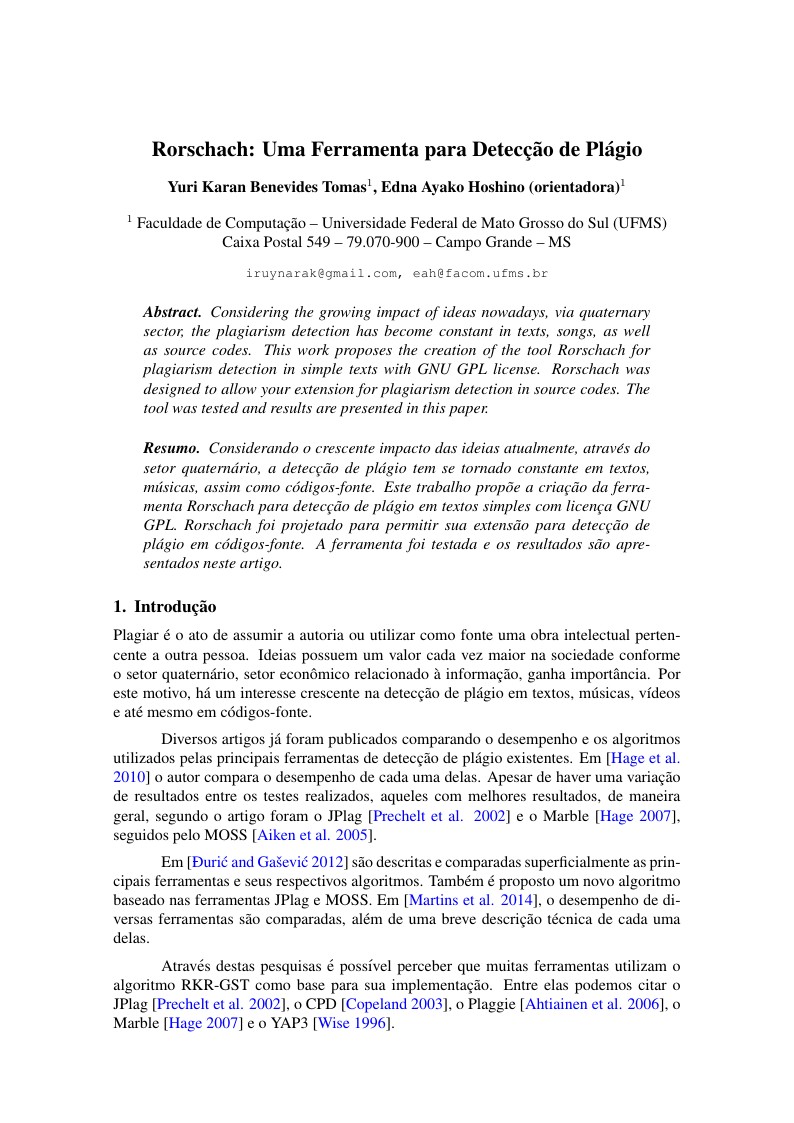
Considering the growing impact of ideas nowadays, via quaternary sector, the plagiarism detection has become constant in texts, songs, as well as source codes. This work proposes the creation of the tool \nameOfProgram \ for plagiarism detection in simple texts with GNU GPL license. \nameOfProgram \ was designed to allow your extension for plagiarism detection in source codes. The tool was tested and results are presented in this paper.
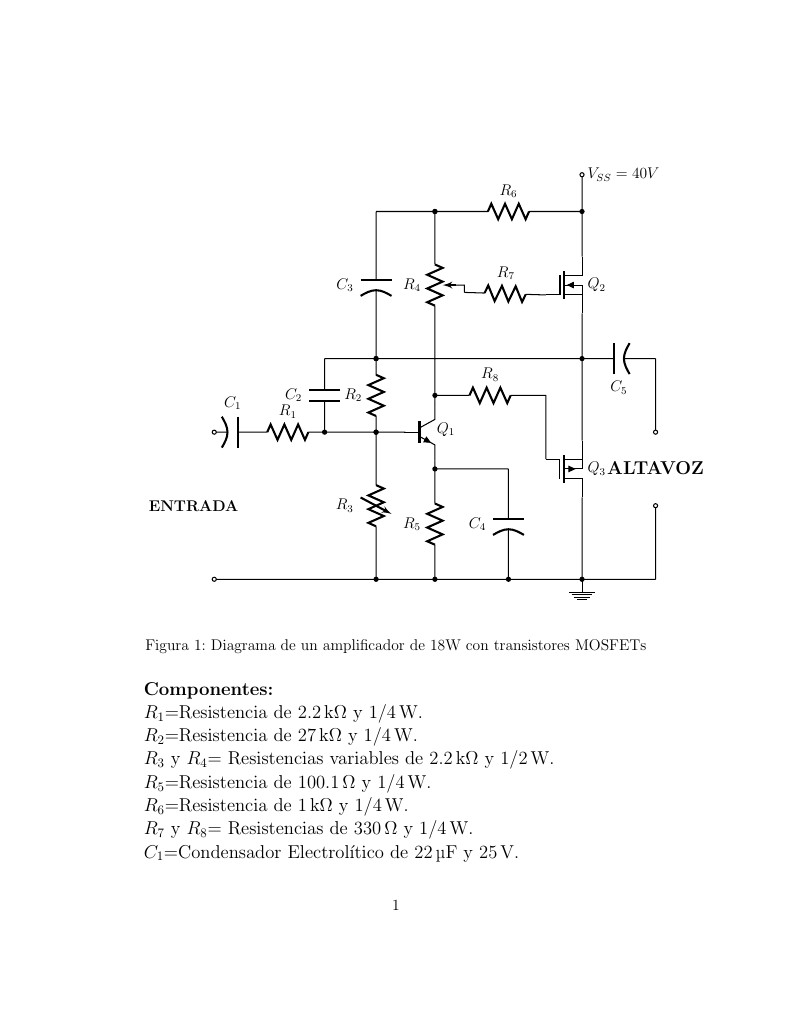
Este ejemplo hace uso de los paquetes circuitikz y siunitx para dibujar el esquema de un amplificador de 18W a base de transistores bipolares y MOSFET. El circuito fue tomado de http://www.circuitstoday.com/mosfet-amplifier-circuits.
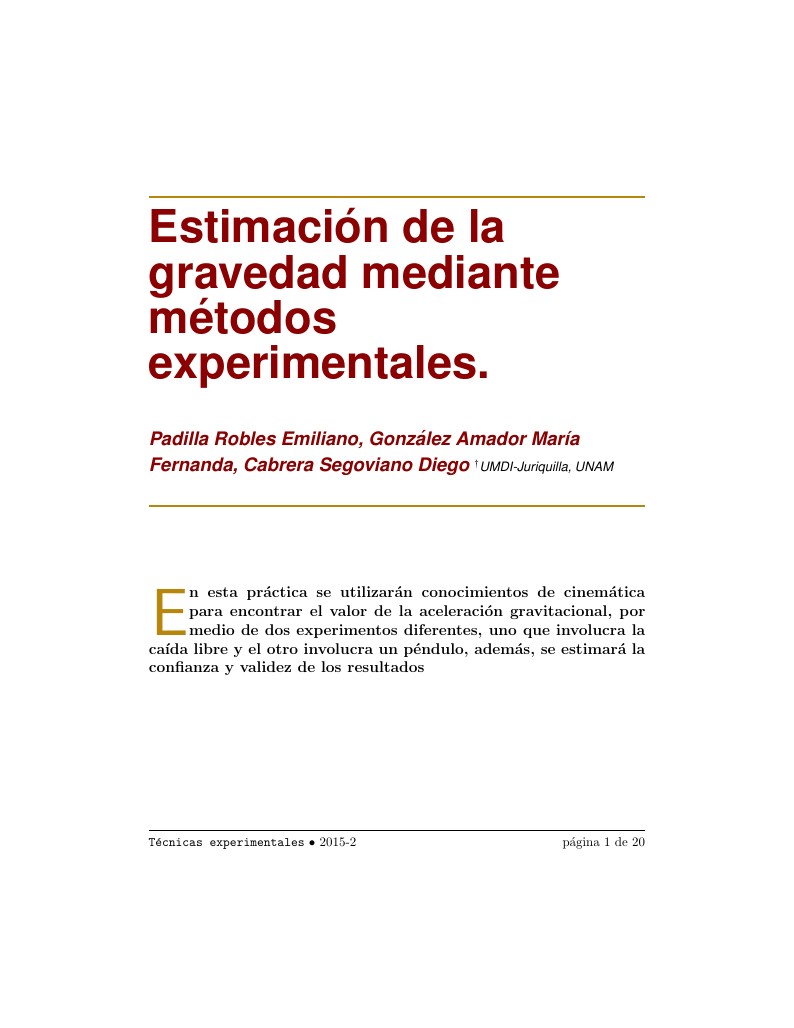
En esta práctica se utilizarán conocimientos de cinemática para encontrar el valor de la aceleración gravitacional, por medio de dos experimentos diferentes, uno que involucra la caída libre y el otro involucra un péndulo, además, se estimará la confianza y validez de los resultados.
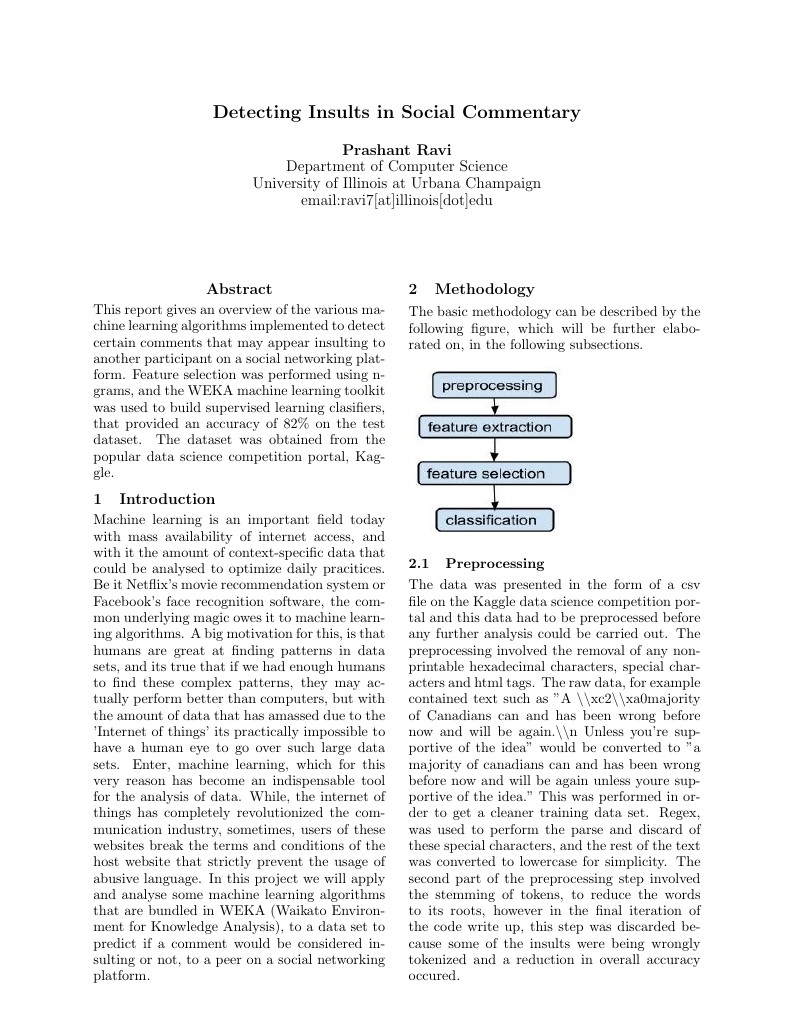
This report gives an overview of the various machine learning algorithms implemented to detect certain comments that may appear insulting to another participant on a social networking platform. Feature selection was performed using n-grams, and the WEKA machine learning toolkit was used to build supervised learning clasifiers, that provided an accuracy of 82% on the test dataset. The dataset was obtained from the popular data science competition portal, Kaggle.
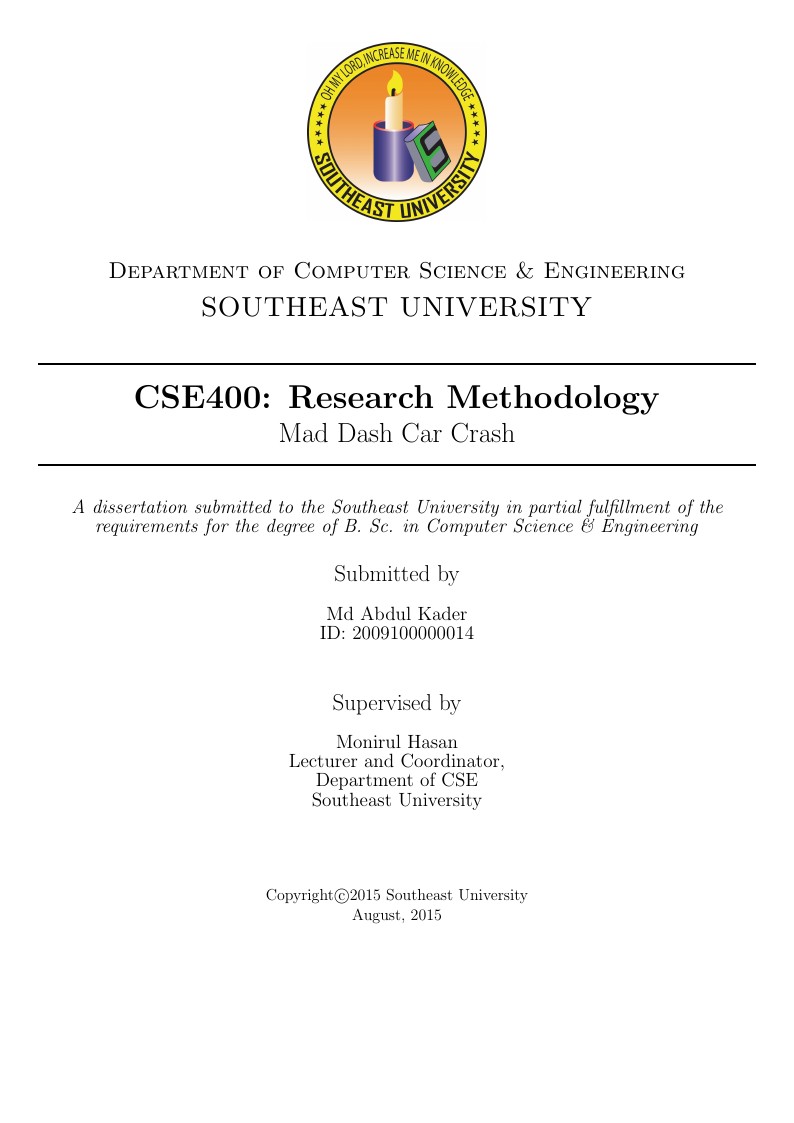
A dissertation submitted to the Southeast University on Mad Dash Car Crash 3D Car Racing Video Games.
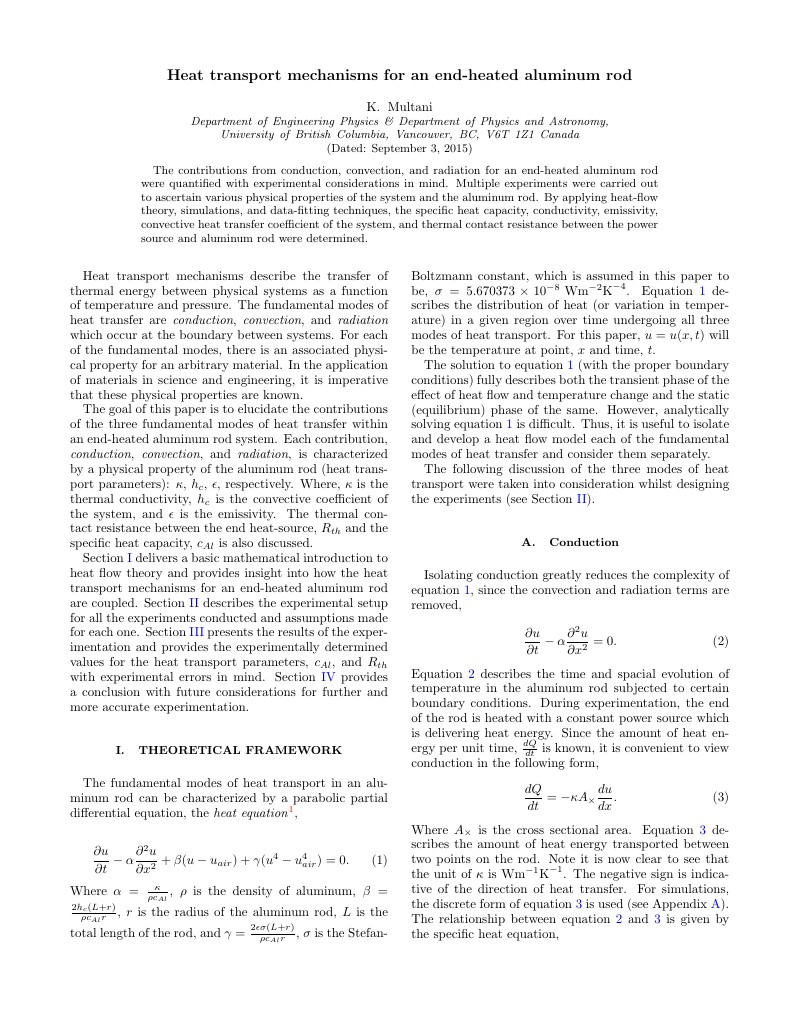
The contributions from conduction, convection, and radiation for an end-heated aluminum rod were quantified with experimental considerations in mind. Multiple experiments were carried out to ascertain various physical properties of the system and the aluminum rod. By applying heat-flow theory, simulations, and data-fitting techniques, the specific heat capacity, conductivity, emissivity, convective heat transfer coefficient of the system, and thermal contact resistance between the power source and aluminum rod were determined.
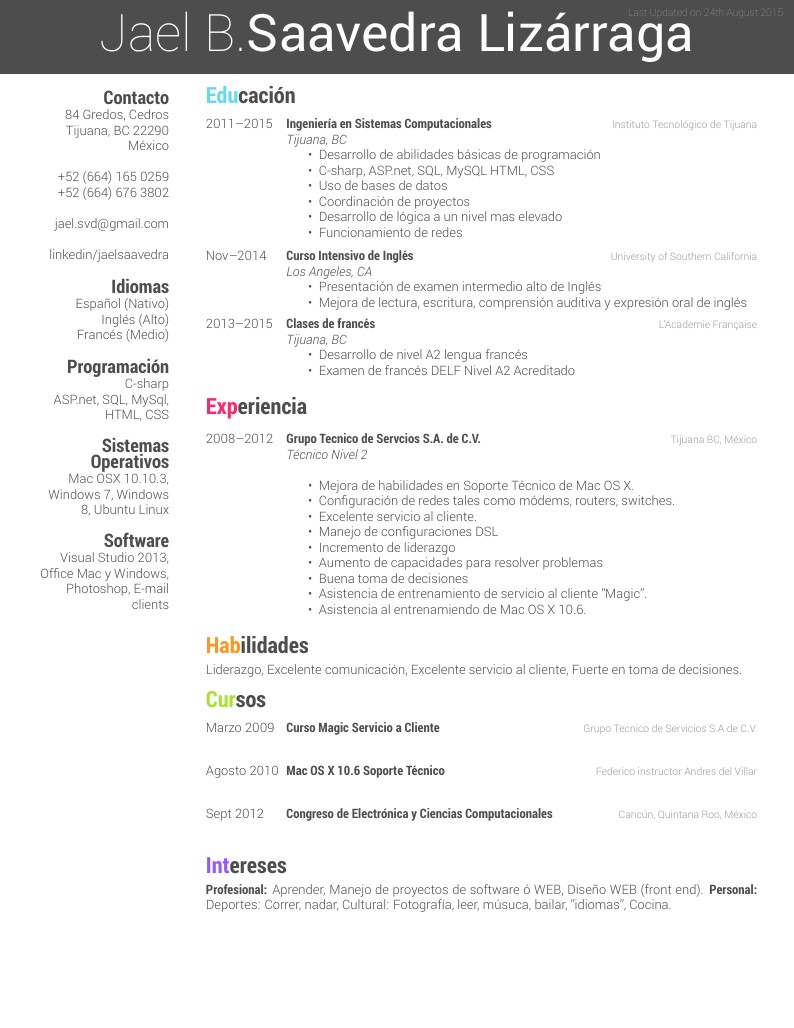
Jael Saavedra's CV
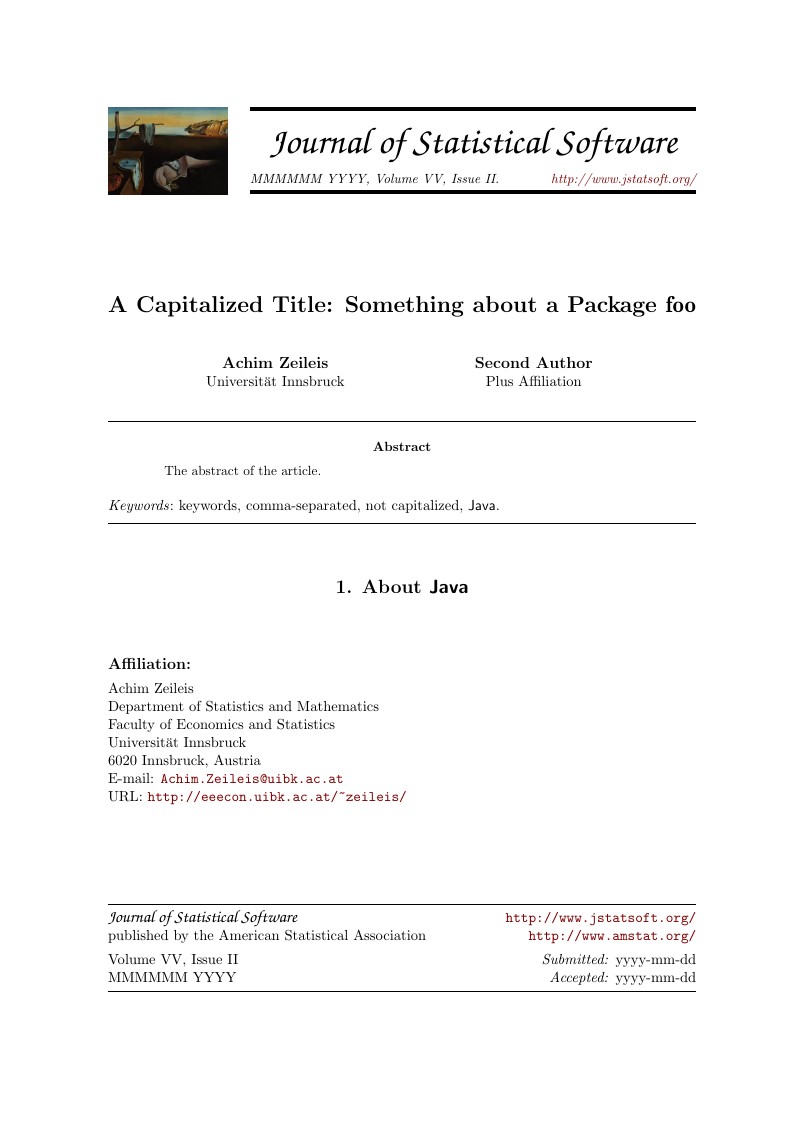
This template for submissions to the Journal of Statistical Software (JSS) was downloaded from the journal's website. There are templates for articles, code snippets, book reviews and software reviews. To use these for your own submission, open this template, and set the appropriate file to be your main file by right-clicking on them in the file list: article.tex codesnippet.tex bookreview.tex softwarereview.tex See README.txt and jss.pdf within this template for further information on how to use the template for your own submission.
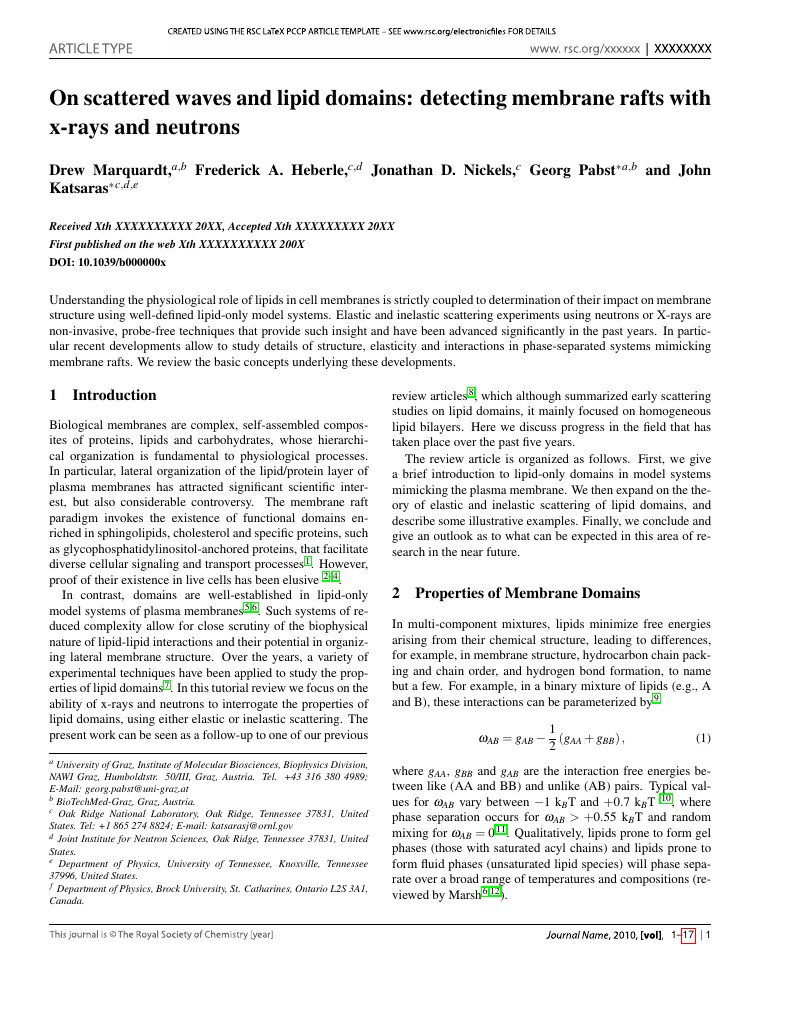
Understanding the physiological role of lipids in cell membranes is strictly coupled to determination of their impact on membrane structure using well-defined lipid-only model systems. Elastic and inelastic scattering experiments using neutrons or X-rays are non-invasive, probe-free techniques that provide such insight and have been advanced significantly in the past years. In particular recent developments allow to study details of structure, elasticity and interactions in phase-separated systems mimicking membrane rafts. We review the basic concepts underlying these developments. Written using the LaTeX template for Royal Society of Chemistry (RSC) journals